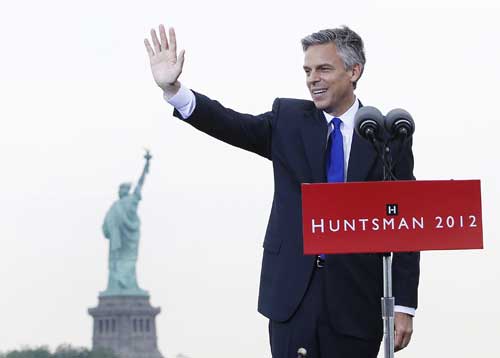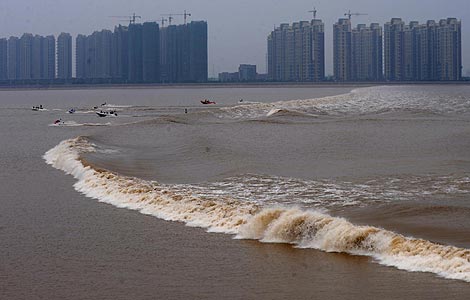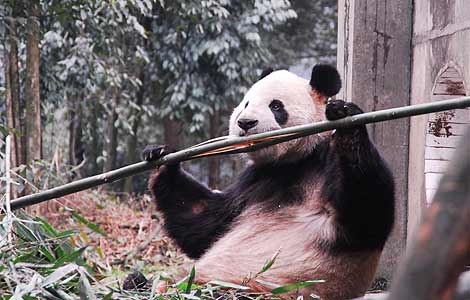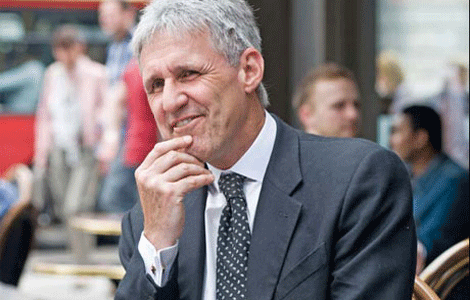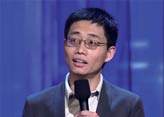Will Huntsman play China card?
Updated: 2011-06-23 07:56
By Kelly Chung Dawson (China Daily)
|
|||||||||
|
Former Utah governor Jon Huntsman announces his candidacy for the Republican US presidential 2012 campaign at Liberty State Park in Jersey City, New Jersey, on Tuesday. Shannon Stapleton / Reuters |
|
|
Time in Beijing may be negative factor among Republicans
NEW YORK - Observers on both sides of the Pacific have different opinions on whether Republican Jon Huntsman's experience in China is an asset or liability as the former US ambassador to China declared his candidacy for the 2012 presidential race.
Huntsman's rich experience with China is actually one of his largest political assets, especially compared to Mitt Romney, his biggest rival among conservatives, said Ni Feng, deputy director of the Institute of American Studies at the Chinese Academy of Social Sciences.
Huntsman, whose most recent posting was as US ambassador to China for nearly two years, officially declared his presidential candidacy on Tuesday.
"Huntsman knows China well, and knows the importance of maintaining a good relationship with China. He didn't do anything that irritated the US Congress as the ambassador. So I think this is going to be an advantage for Huntsman, because Washington is certainly taking its relations with Beijing as one of the most important bilateral relationships," Ni said.
In declaring his candidacy, Huntsman stressed that he is "a real conservative" who believes that the "best long-term national security strategy is rebuilding our core here at home".
Huntsman also invoked an icon of the Republican Party by choosing to make his announcement at New Jersey's Liberty State Park, the same place where Ronald Reagan had declared his presidential candidacy in 1980.
However, some observers said that he will likely downplay his posting as US ambassador to China to distance himself from President Barack Obama in order not to alienate Republican voters.
"His ambassadorship to China will be a negative in the primaries," Kenneth Lieberthal, director of the John L. Thornton China Center at the Brookings Institute, told China Daily.
"The people who vote in the Republican primaries tend to be to the right of the center of gravity of the party. Huntsman will be advised to put considerable distance between himself and China, and will likely avoid the issue. The polls currently suggest that his experience in China will actually harm him in the conservative segment of the race."
The economic downturn will inevitably be the primary focus of the campaign, Lieberthal said.
"Our current fiscal situation in the US will be priorities one, two and three in the presidential election," Lieberthal said.
"It's the core issue, and one of such dramatic importance that it will dominate the election. While there are arguments that tie China into our fiscal challenges, the reality is that the US and Chinese economies are deeply interdependent and no responsible candidate would propose any great change to our current policy. Further, if Huntsman wins the candidacy, how would Obama criticize Huntsman when Huntsman's experience in China was in carrying out Obama's own policies?
"I think that unless something dramatic occurs, China is likely to be an echo in the campaign, but not a central issue in it," he added.
"As former US ambassador to China, Jon Huntsman is unlikely to take a tough attitude in his remarks on China this time, because he worked hard to improve bilateral relations between China and the US in 2010. If he were to suddenly change position toward China, his Democratic opponent can say that he is a two-faced politician," said Shi Yinhong, director of the Center for American Studies at Renmin University of China.
However, "in order to cater to US politicians and voters who consider China the US' biggest competitor, Huntsman will be tough on China's trade, monetary and human rights policies, but in general, he will adopt a gentle tone to express his opinion in judging China", she added.
In his speech, Huntsman also spoke about the current US financial crisis, warning Americans that decisions must be made to avert disaster.
"Our country will fall behind the productivity of other countries; our influence in the world will wane," he said. "Our security will grow even more precarious and the 21st century will then be known as the end of the 'American century'. We can't accept this and we won't."
Huntsman is expected to travel to New Hampshire, South Carolina, Florida, Utah and Nevada in the coming weeks.
Ma Liyao contributed to this story.
China Daily
